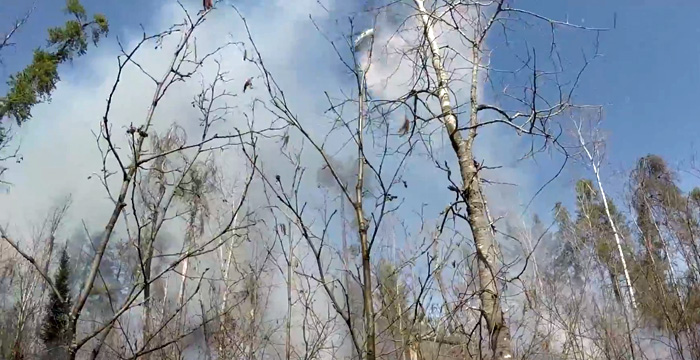Due to the wildfire season, Manitoba Health, Seniors and Long-Term Care encourages Manitobans to regularly check local weather and air-quality conditions and learn more about protecting themselves if wildfire smoke results in worsened air quality.
Exposure to smoke can cause sore eyes, tears, coughs and a runny nose. It can also worsen heart and lung conditions such as asthma. Heavier smoke or long-term exposure can cause longer-lasting or more serious health concerns.
Manitobans can take steps to protect themselves from poor air quality:
- limit outdoor activity, particularly strenuous activity, and plan to be outside when it is less smoky;
- stay indoors with windows and doors closed, using fans to circulate the air and keep the room cool;
- set air-conditioning units to recirculate to avoid drawing smoke indoors including in cars;
- drink plenty of water to remain hydrated;
- turn on room air cleaners with HEPA filters if available; and
- keep indoor air cleaner by avoiding smoking or burning other materials.
Children, the elderly, people with chronic heart or lung conditions, and people who spend a lot of time outdoors are at the highest risk and should take precautions when smoke conditions are light to moderate. People who are considered healthy should take precautions when smoke conditions are heavy. Individuals with heart or lung conditions should follow the advice of their health-care provider, ensure an adequate supply of medication and monitor their condition carefully. To view current air quality levels, visit weather.gc.ca.
For those with family members, friends or neighbours vulnerable to effects of poor air quality, this is a good time to begin discussing and planning how to support their health and safety in the event of wildfire smoke.
Wildfires and poor air quality can happen at the same time as heat waves in the summer months. For most people, heat exposure is more dangerous than smoke, so it may be safer to keep windows open to stay cool in those situations. For some people, being outdoors and staying active is important for their mental health and well-being. This may outweigh the risks of poor air quality or they may choose to find other ways to stay active while reducing smoke exposure whenever possible.
Manitobans with health questions or concerns can contact their health-care provider or call Health Links-Info Santé at 204-788-8200 or 1-888-315-9257 (toll-free).





